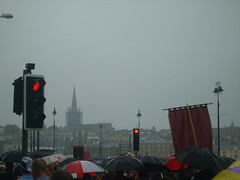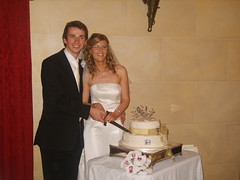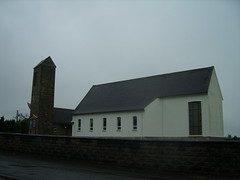As we progress through 1 Peter, Peter again appeals for Christians to be loving people, to be bound up in love together. To be honest, you might be forgiven for thinking he goes on about love so very much. In fact, it even looks as if he goes a bit overboard – I mean, it’s okay to love the people like us, or people who like us, but to love those who hate us and harm us?
We’ll see that Peter calls us to be loving people, giving both instruction on how to do it, as well as the reasons why we should do it. Hopefully we’ll see how it fits into Peter’s grand scheme of things within the letter as a whole.
Look with me at verse 8 – ‘Finally, all of you, have unity of mind, sympathy, brotherly love, a tender heart, and a humble mind.’ There’s another of those dreaded ‘finally’ words – it looks like he’s finishing, but in fact he has another couple of chapters to go! Yet it ties up the section he has been dealing with, so it is ‘finally, all of you.’
Leading up to this point, Peter has been speaking of the various models of submission that are part of the Christian life – submission to the proper authorities, submission to masters, submission to husbands. You see, in some of the specifics, they may not have applied to everyone – but now Peter draws the section to a close by appealing to everyone to live a submissive life as part of the community of faith.
First of all, he draws some general characteristics of the submissive life – unity of mind, sympathy, brotherly love, a tender heart, and a humble mind. These things are nothing new to Peter’s readers. Already he has sought for the unity of mind that comes from the hope that they share; the sympathy and compassion of (for example) husbands for their wives; the brotherly love of chapter 1 which flows from a pure (tender) heart; and the humble mind which submits to others.
Peter then moves into some direction for those facing persecution or opposition. Let’s be clear here – Peter is not writing fairy tales to people whose lives are all sweetness and light. He’s writing to real people who are facing real problems – and in particular, the problem of suffering and persecution. He has already briefly mentioned persecution in chapter one (calling his readers the ‘elect exiles’ (1:1) and ‘though now for a little while … you have been grieved by various trials’ (1:6). Now he goes on to counsel them on how to respond to these trials.
‘Do not repay evil for evil or reviling for reviling, but on the contrary, bless, for to this you were called, that you may obtain a blessing’ (3:9). How to deal with opposition? First off, don’t give what you get – while the enemy will trade in evil and reviling, it’s not how we’re to respond. Rather, Peter says, give them what they don’t expect. They expect evil in return, ‘but on the contrary, bless.’ What does that mean, though – what does it mean to bless someone?
Obviously it cannot mean that we reckon as good what is truly evil. Sin is sin. But at the same time, we are to actively seek the good of the other person. As one writer has said, ‘Christians are free from vindictiveness because they trust God’s justice; but they are free for blessing because they know God’s goodness.’
Notice also that the life of blessing is not an optional extra, not a perk that only super-holy Christians can achieve. Rather, ‘bless, for to this you were called.’ While the enemy may not expect us to bless them, God expects us to bless. In blessing when cursed and repaying good for evil, we ultimately follow in the footsteps and example of Jesus, as Peter has already reminded us in 2:23.
Further, Peter provides the reason for the good life, the life of blessing. Simply, because in blessing others, you will obtain a blessing. He shows this in his use of Psalm 34. Verses 10-12 are a direct quotation from Psalm 34. As you can see, they’re also all about the benefits that come from the life of blessing. God is for those who are a blessing to others (those who are righteous), and against those who do evil.
Then Peter goes much further than this. Not only are we called to the life of blessing because we are expected to do it, nor even because of the reward there may be for us, but also, we are called to bless because of the witnessing potential involved. You might think that Peter is being naïve here with his question about there possibly being anyone to harm us for doing good. You might be able to think of plenty of people who would do you harm while you try to do good. Peter asserts there is blessing for us, and the potential to let our persecutors know why we are blessing them – seeking their welfare.
‘Have no fear of them, nor be troubled, but in your hearts honour Christ the Lord as holy, always being prepared to make a defence to anyone who asks you for a reason for the hope that is in you.’ (14-15)
You see, as I said earlier, those who seek to harm us will expect us to retaliate – it’s the worldly thing to do. Someone does something to you, then you get them back. But if we don’t retaliate; if we respond by blessing rather than cursing; it’s going to be unusual, and maybe even confusing for them. Why aren’t you fighting back? Why are you different? Why are you joyful all the time?
What’s the difference? You already know what the difference is – having honoured Christ in our hearts and having the hope in our hearts that comes from him. That’s why we can face circumstances of suffering differently from those around us.
Yet we also need to be ready to tell people when they ask. Are you able to tell a colleague or a friend or neighbour about Jesus if they happen to ask about your hope? Graham Tomlin has written a book called ‘The Provocative Church’ and it deals with this very factor. He argues that we need to be more provocative in how we live our lives so that others see the hope we have and then ask the questions.
And if you’re ready to live the life of blessing, by being able to tell others about your hope – Peter has further advice. ‘Do it with gentleness and respect, having a good conscience, so that, when you are slandered, those who revile your good behaviour in Christ may be put to shame. For it is better to suffer for doing good, if that should be Christ’s will, than for doing evil.’
Can you see the point of these verses? Those who slander us are going to suffer for doing evil. We may well have to face suffering or slander for seeking to do good – but if you’re going to tell others about Jesus, then you need to do it with a good conscience. Because, at the end of the day, it’s going to be far better to suffer for doing good than suffering for doing evil. For the person who slanders, there is shame, but for the Christian who endures suffering, there is only the good conscience.
Peter then goes on to talk about the good conscience, as he returns again to the key theme of the cross. Within 1 Peter, he speaks directly about the cross three times, in each of the first three chapters. As we’ve already thought about briefly, when we suffer for doing good, we are following in the example of Jesus.
‘For Christ also suffered once for sins, the righteous for the unrighteous, that he might bring us to God’ (3:18). It is only because Christ lived the life of blessing, in loving us, that we can follow in his footsteps. And it is because Christ has died for us and was raised again (21) that we have the appeal for a good conscience before God, as we are joined in baptism with Jesus.
In the first mention of the cross, Peter’s focus was on the past – looking beyond the foundation of the world when Christ was foreknown. Then in the second, he spoke of the current calling of submission and not retaliating, especially speaking to slaves, but also to everyone. Now in the third his focus shifts forwards – to Christ seated at the right hand of God through the resurrection with everything subject to him.
You see, the reason we can respond with grace to those who seek to do us harm is because of whose we are. Jesus Christ suffered for us, and he now sits at the right hand of the Father – in the place of authority and power, ready to judge the world. By seeking revenge or retaliation, we’re taking God’s place, in not letting him judge.
You’ll maybe have noticed there are several verses in the middle of the last paragraph I haven’t mentioned yet. Simply put, this is one of the times when I wish Peter had been a little clearer as to what he meant! He speaks of Christ proclaiming to the spirits in prison, who didn’t obey in the days of Noah.
One commentary I read has suggested at least four possible interpretations of who the spirits are – either angels who disobeyed, or the people from Noah’s day; with them either having the gospel proclaimed to them so they may repent, or simply that Christ proclaims his victory over evil and therefore the news of their final doom. I just don’t know, and have gotten no further forward on those few verses. But I’ll keep at it, and maybe in the future I’ll know what it is about.
Nevertheless, the mention of Noah is also an illustration of what Peter has been saying in the passage tonight. Think of all the cursing and reviling and laughter at Noah as he built the ark, the big boat, miles from the coast. It would be like someone in Dromore going up to the rugby club and starting to build a boat. You would think they were nuts! But he persisted in obedience to God’s call, he appealed for his neighbours to join him in the ark, and still they laughed at him. Noah, according to 2 Peter 2:5, was a ‘herald of righteousness’ – blessing when people cursed him. And that’s what God, through Peter calls you to be in the place where you are.
Together, we should be loving people – with that unity of mind, sympathy, brotherly love, a tender heart, and a humble mind. And as well as that, we are called to bless when we are cursed, to seek the good of those who seek our harm.
Maybe as I’ve been speaking, you have been thinking of someone in particular who you find it hard to deal with. Someone who always has a go at you. We’re going to pray now, and for a moment just think about that person. Pray to God and ask him how you can not fear them, but rather seek their good, and to be like Jesus in that way. Then over the next week, keep praying for them, and see how things change.
[Lord God, you have called us to be a blessing to those around us, even to those who seek to harm us. Grant us your strength and your grace to love the people we have thought about as you love them. And help us to seek their welfare. In Jesus’ name we pray, who died for us and reigns with you and the Holy Spirit, one God, forever. Amen]





